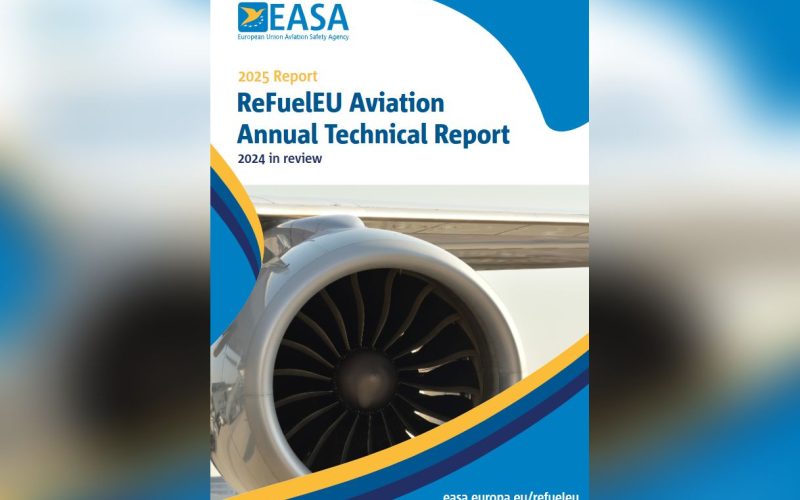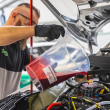The European Union Aviation Safety Agency (EASA) has published its inaugural ReFuelEU Aviation Annual Technical Report, offering the first comprehensive snapshot of Sustainable Aviation Fuel (SAF) production, supply and usage across the European Union.
According to the report, in 2024 SAF accounted for 0.6% of all aviation fuel supplied at EU airports — equivalent to 193 kilotonnes, which helped avoid approximately 714 kilotonnes of CO₂ emissions. This reduction is comparable to around 10,000 flights between Madrid and Paris, based on the International Civil Aviation Organization’s (ICAO) CO₂ calculator.
From 2025, a mandatory 2% SAF blending target will apply to fuel supplied at designated Union airports under the ReFuelEU Aviation Regulation.
“This first Annual Technical Report marks an important milestone and makes clear that the EU has taken important first steps,” said Maria Rueda, EASA’s Director for Safety Management, Strategy and Global Outreach. “A functioning reporting system is now in place, initial compliance levels are solid, and SAF delivery is happening across multiple Member States. This report sets an important benchmark for our sustainability efforts in the future.”
Key findings
- Production outlook: The EU is on track to meet the 6% mandatory SAF target by 2030.
- Fuel mix: No synthetic fuels were reported in 2024, indicating that technology remains at an early stage in Europe.
- Prices: The average SAF price was €2,085 per tonne, compared to €734 per tonne for conventional jet fuel.
- Market concentration: 25 suppliers provided SAF to 33 airports in 12 Member States, with France, the Netherlands, Spain, Sweden and Germany accounting for 99% of total supply.
- Feedstock: Nearly all SAF supplied was biofuel, with 81% produced from used cooking oil and 17% from waste animal fats.
- Origin of feedstock: 69% of raw materials came from outside the EU — primarily China (38%) and Malaysia (12%), while Finland was the largest EU source at 10%.
The report also notes that data collection for 2024 saw participation from 67% of aviation fuel suppliers and 74% of aircraft operators under the regulation. EASA expects full reporting by 2025, enabling an accurate assessment of compliance with the new 2% SAF requirement.
The ReFuelEU Aviation Regulation (EU 2023/2405), which mandates the use of SAF at around 150 EU airports handling more than 800,000 passengers annually, is a cornerstone of the bloc’s wider strategy to decarbonise aviation and meet its 2030 and 2050 climate goals.

















